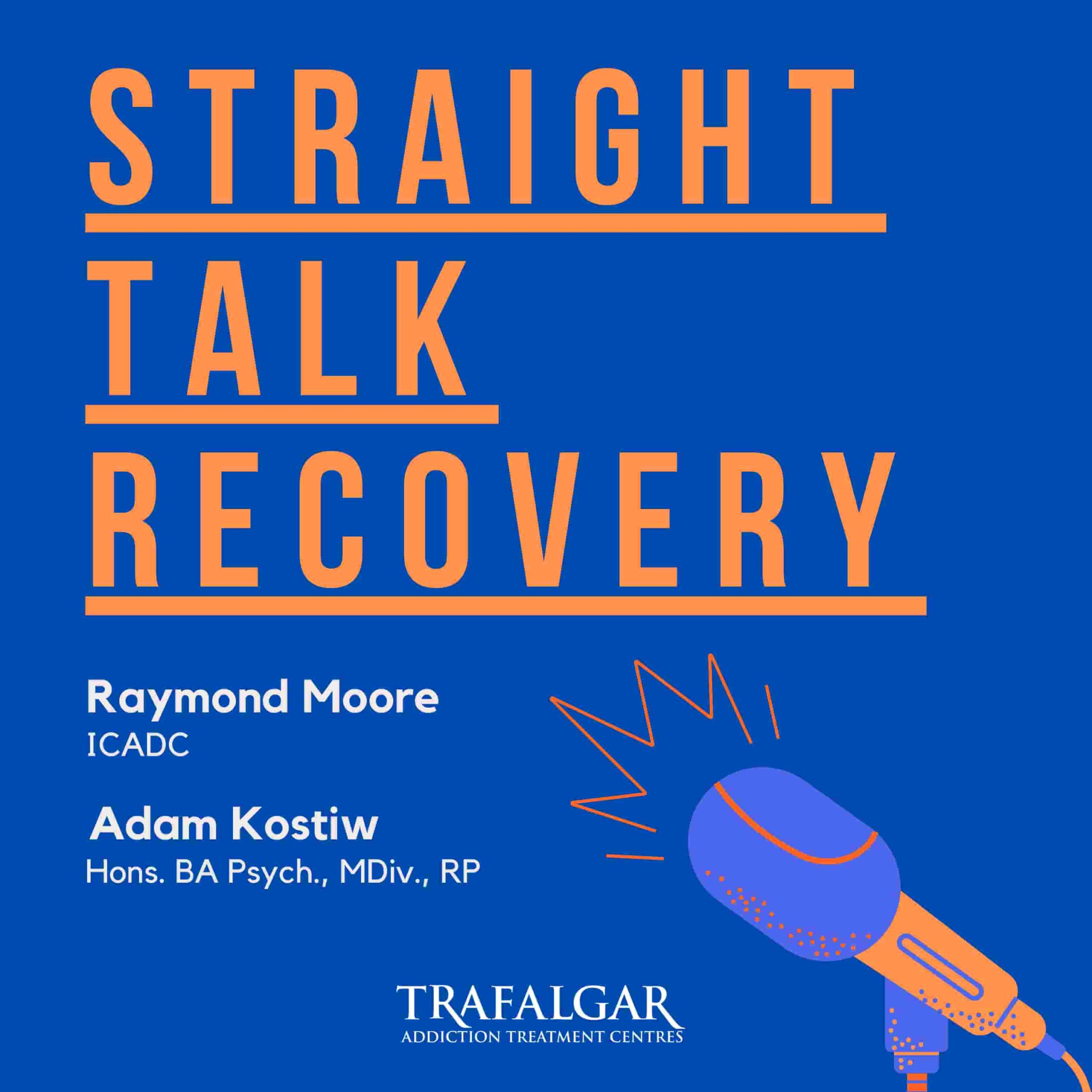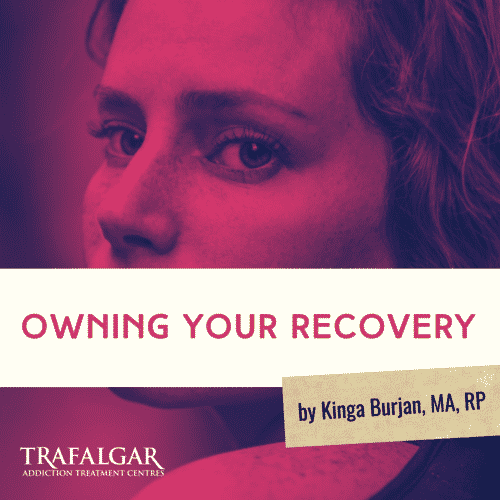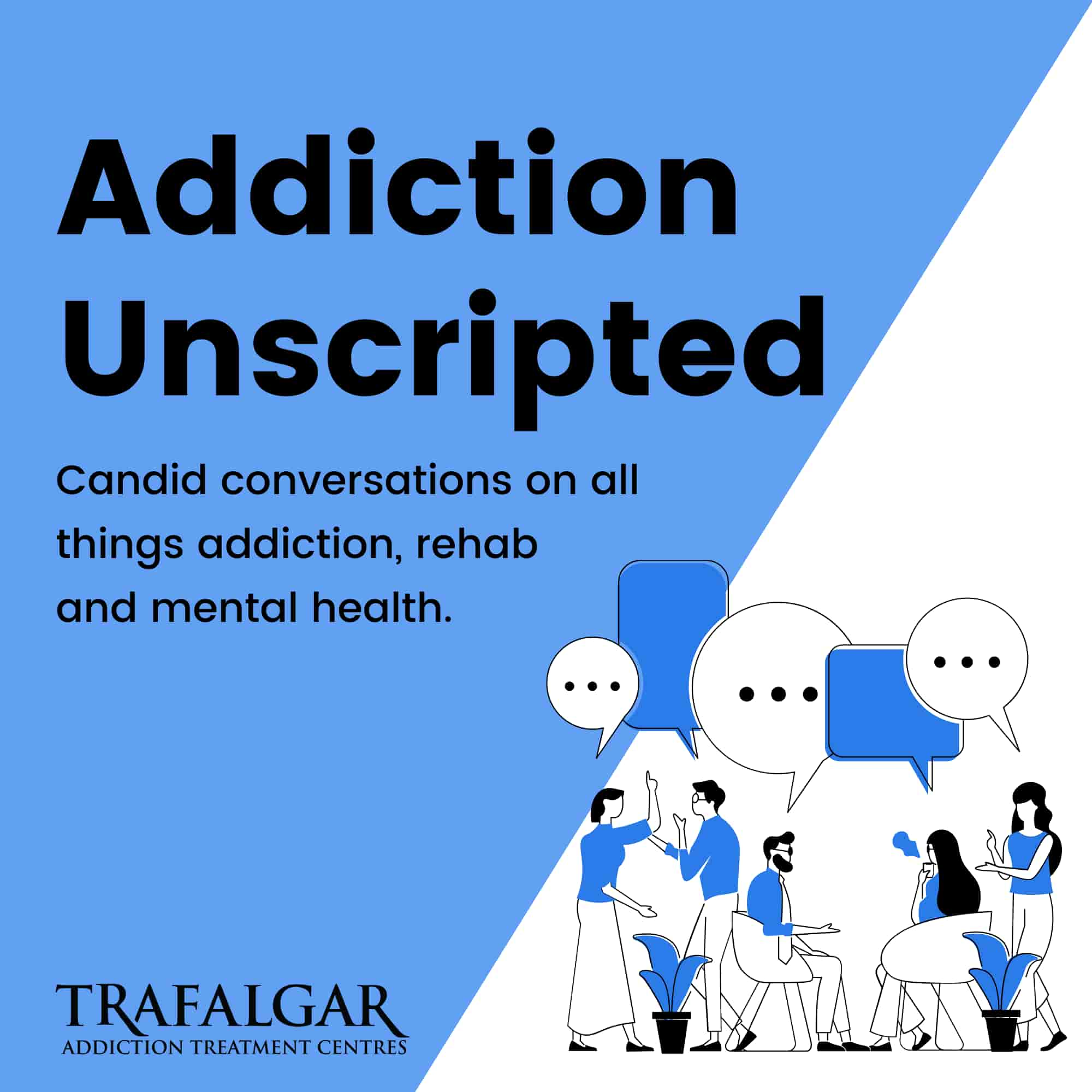Please note that the content in the podcasts below, including information about our centers, reflects what was available at the time of recording and may no longer be accurate. For the most up-to-date details about our programs, offerings, and centre locations, please contact us directly.

Straight Talk Recovery
Straight Talk Recovery addresses the myths and realities of addiction rehab, how people can get help for addiction, and what recovery looks like.
Raymond Moore and Adam Kostiw bring you stories from the front line of addiction and mental health treatment.







